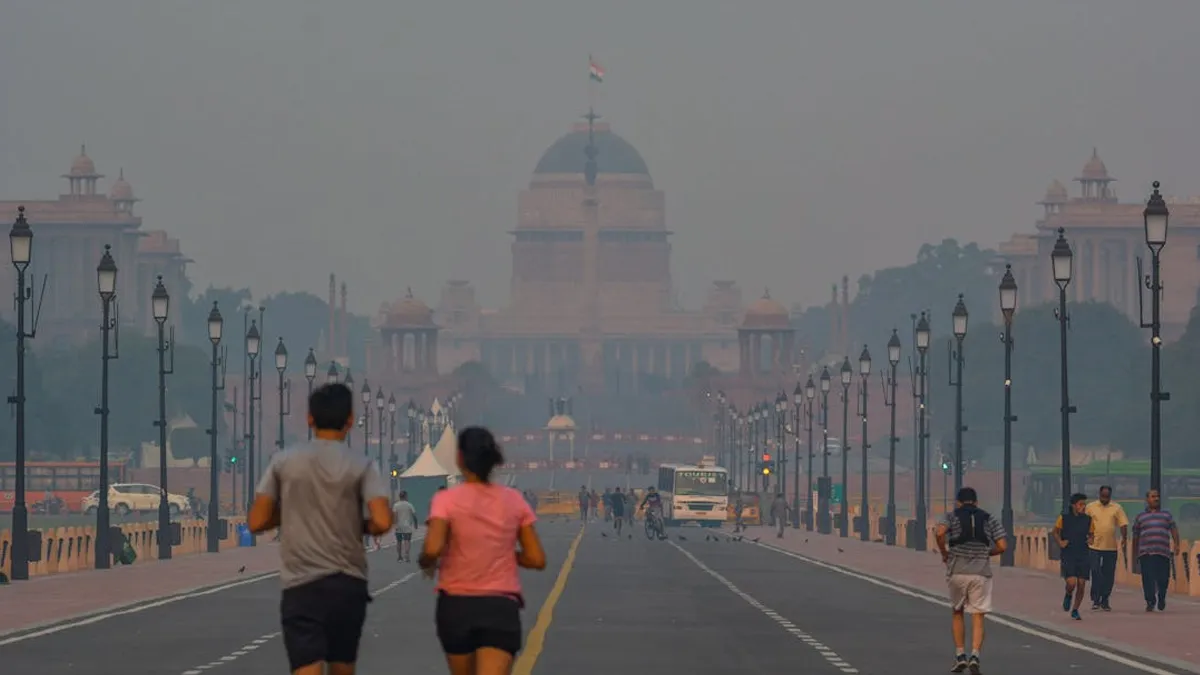
Come winter, and Delhiites gasp for breath. Every year, during Diwali and the whole of winter, the city’s air pollution levels rise to dangerous levels. So much so, that Delhi has now earned the tag of one of the most polluted cities in the world. We all know how air pollution gives way to respiratory and cardiovascular diseases. But there’s more to it. Recently, researchers and doctors have stated that high levels of pollutants in the air may have links to rheumatoid arthritis.
Table of Content:-
To get a better understanding of this, we get in touch with Dr Debashish Chanda, an orthopaedic surgeon at CK Birla Hospital, Gurgaon. Let’s see what the expert has to say.
What is Rheumatoid Arthritis (RA)?
Rheumatoid Arthritis (RA) is a painful and disabling autoimmune disease that inflames the joints. “It has traditionally been linked to genetics, age, and gender. But now, air pollution is emerging as a potential environmental trigger, especially in heavily polluted cities like Delhi, where toxic air has become a part of daily life,” says Dr Chanda.
Rheumatoid Arthritis is a chronic autoimmune disorder where the body’s immune system mistakenly attacks its own tissues — primarily the joints. It causes pain, stiffness, swelling, and over time, joint deformity and disability.
“The disease is systemic, meaning it can also affect other organs, including the lungs and heart. RA typically affects people between 30 and 60 years old and is more common in women. Early symptoms can include fatigue, morning stiffness, joint tenderness, and swelling — often starting in smaller joints like fingers and toes,” explains Dr Chanda, adding: “It’s not the same as osteoarthritis, which is related to age and wear-and-tear. RA is driven by inflammation, fueled by an immune system that goes rogue.”
What is the New Finding All About
Air pollution, especially fine particulate pollution, could be causing a sharp increase in cases of RA in Delhi-NCR, stated rheumatologists at the 40th annual conference of the Indian Rheumatology Association held from October 9 to 12 in New Delhi. According to reports, experts noted that there is an increase in both the number and intensity of rheumatoid arthritis in the national capital. It added that people without a genetic predisposition to it are also contracting rheumatoid arthritis, they added.
Rheumatoid Arthritis Cases in Delhi Linked to Air Pollution?
“In recent years, several hospitals and private clinics in Delhi and the National Capital Region (NCR) have reported a rise in RA cases, many among patients with no prior family history of autoimmune diseases. These trends are coinciding with the city’s worsening air quality — suggesting a strong environmental component to disease onset,” explains Dr Chanda.
The expert adds that patients are also reporting more severe symptoms and earlier flare-ups, prompting researchers and clinicians to explore whether Delhi’s polluted air could be more than a respiratory irritant — and potentially a trigger for autoimmunity.
Expert Tips to Stay Safe
We can’t control Delhi’s air quality, but there are certain steps we as individuals can take to protect ourselves. Those who have genetically predisposed to RA or have early symptoms, need to be more careful. Dr Chanda shares tips to stay safe:
1. Monitor and Reduce Exposure
- Use AQI apps to stay informed about daily air quality.
- Avoid outdoor exercise when AQI is unhealthy or worse.
- Wear N95 masks on high-pollution days.
- Invest in air purifiers for homes, especially in bedrooms.
- Ventilate wisely — open windows only when pollution levels are low.
2. Support Immune Health
- Eat a nutrient-rich, anti-inflammatory diet with fruits, vegetables, healthy fats (like omega-3s), and whole grains.
- Avoid smoking and secondhand smoke exposure.
- Exercise regularly — ideally indoors or in cleaner spaces.
- Get enough sleep and manage stress, both of which can impact immune function.
3. Seek Medical Help Early
- If you have persistent joint pain or stiffness — especially in the mornings — see a rheumatologist.
- Early diagnosis of RA can prevent irreversible joint damage.
- If you already have RA, keep track of symptoms and flare-ups, especially during high pollution periods.
The Final Word
Research increasingly points to air pollution as a trigger for rheumatoid arthritis. It isn’t just a disease of ageing or genetics anymore. In polluted cities, it may become a disease of exposure. Thus, protecting yourself from rheumatoid arthritis may now mean protecting yourself from pollution — and fixing India’s autoimmune crisis may start with cleaning the air we all share.
Also watch this video
FAQ
How does air pollution cause rheumatoid arthritis?
When inhaled, pollutants irritate the lungs, setting off inflammatory responses that affect the entire body — including the joints.Can rheumatoid arthritis be caused by the environment?
Multiple genetic and environmental factors have been associated with an increased risk for rheumatoid arthritis (RA).Who is more prone to rheumatoid arthritis?
Rheumatoid arthritis (RA) is more common in women, middle-aged and older adults, people with a family history of the disease, and smokers.
Read Next
Is Pollution Making Us Forgetful? The Environmental Link to Alzheimer’s: What Doctor Suggests
How we keep this article up to date:
We work with experts and keep a close eye on the latest in health and wellness. Whenever there is a new research or helpful information, we update our articles with accurate and useful advice.
Current Version
Oct 17, 2025 17:06 IST
Published By : Shruti Das